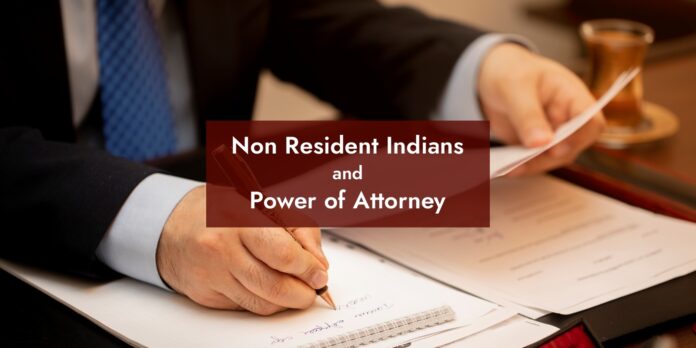NRIs and Power of Attorney (PoA) are related to each other. In fact, any Non-Resident Indian wishing to buy or sell property must have an in-depth understanding of PoA. Thus, here in this blog post, we let you know all the essential things about PoA.
What is PoA?
Commonly known as PoA, it is a document drafted according to Indian norms. It has a mention of the current property owner(s) and previous property owner(s). The document is pivotal for NRIs (Non-resident Indians) who own property in India.
NRIs and PoA
For NRIs, making a back home visit is an impossible specially for the addresssal of transactional and other issues. Thus, Non-Resident Indians depute a person to act and complete all formalities on his/her behalf. PoA’s objective is to make successfully closure of issues seamless for NRIs at large.
Indian Real Estate, Non Resident Indians and PoA
Here in India, the Power of Attorney has several usages. It includes buying, selling, leasing, and/or renting a property. PoA is also important for resolving property disputes. The main reason is because it contains property owner(s) name.
PoA comes handy to address home loan sanction, property insurance, and taxation like things.
Power of Attorney: Types
Continue reading the blog as we here elaborate all three types of PoA.
Special PoA
Under this heading, the Power of Attorney is released to attain a special purpose. It can be a transaction-centric and is possible to expire once the objective is achieved. In short, the person holding PoA can take decision only on the permitted issues.
General PoA
The NRI delegates a person the authority to make several decisions related to transactions, however in a limited manner.
General Power of Attorney
Under this, the person deputed to use the General PoA of an NRI and is rightful to make transactions-related decisions in an extended capacity.
Durable PoA
A durable PoA has a shelved life until the same is canceled by the grantor. In fact, the person holding Durable PoA is eligible to use this kind of PoA for lifetime if the grantor’s mental condition is unstable.
Steps to Exercise PoA in India
There are two scenarios. Firstly, we here discuss the circumstance when the NRI is present in India.
- On the stamp paper valuing Rs. 100, the grantor is required to get the drafted PoA matter typed.
- To get the process done, NRI is required to visit the sub-registrar office and must have two representatives and witnesses along.
- It is pivotal to carry the ID Proof of the witnesses, a photocopy of the POA, and the original copy.
- In the presence of the sub-registrar, the grantor and the deputed person attorney have to sign the drafted Power of Attorney.
- PoA’s registration can take 3-5 days, after which the grantor and deputed person can collect from the sub-registrar office.
Execution of POA if the Non-Resident Indian Lives Abroad
In this scenario, the Indian Embassy first verifies the signature of the notary. However, it is not mandatory to have Power of Attorney at the time of execution. Although it’s pivotal for the grantor to get it stamped within 90 days from the date of receipt of the POA in India.
Remember, the stamp duty is applicable according to the 2 (17) of the Indian Stamp Act, 1899.
The second way to execute PoA is via Apostallisation. It is a procedure to execute PoA anywhere outside India. Apostille is a certificate that verifies and confirms the signatures of the authenticating person. Hauge Convention, 1961 carry out this procedure. Although, it must be compliant with the Indian Registration Act, of 1908 and PoA Act 1882.
Hence, if the PoA is executed outside India, then it must be registered in India also.
Conclusion
There are multiple types of PoAs to choose from. All PoA offers distinct rights to the deputed person. Also, for the grantor to get the respective PoA registered in India. The presence of two witnesses is mandatory at the time of PoA registration.



